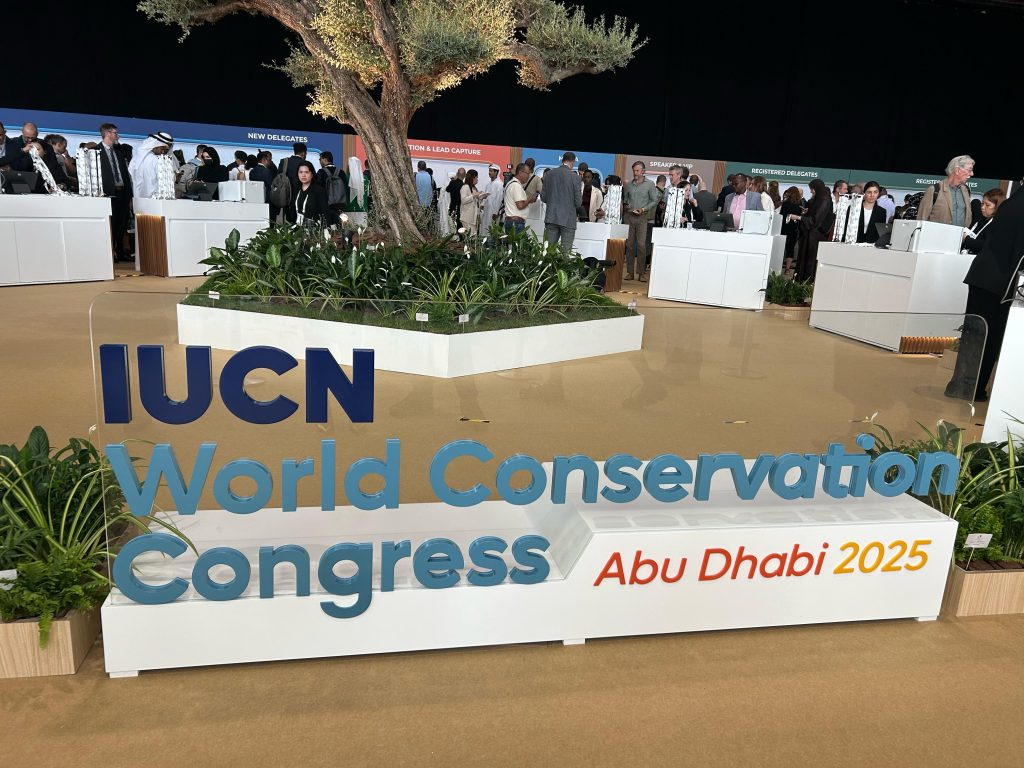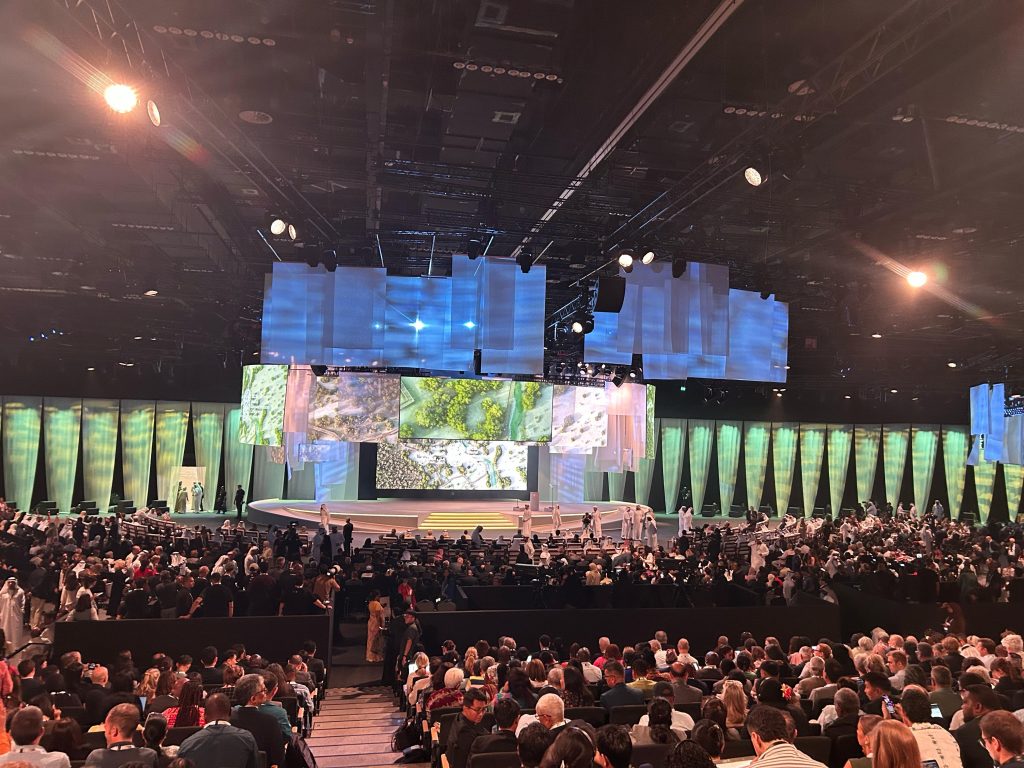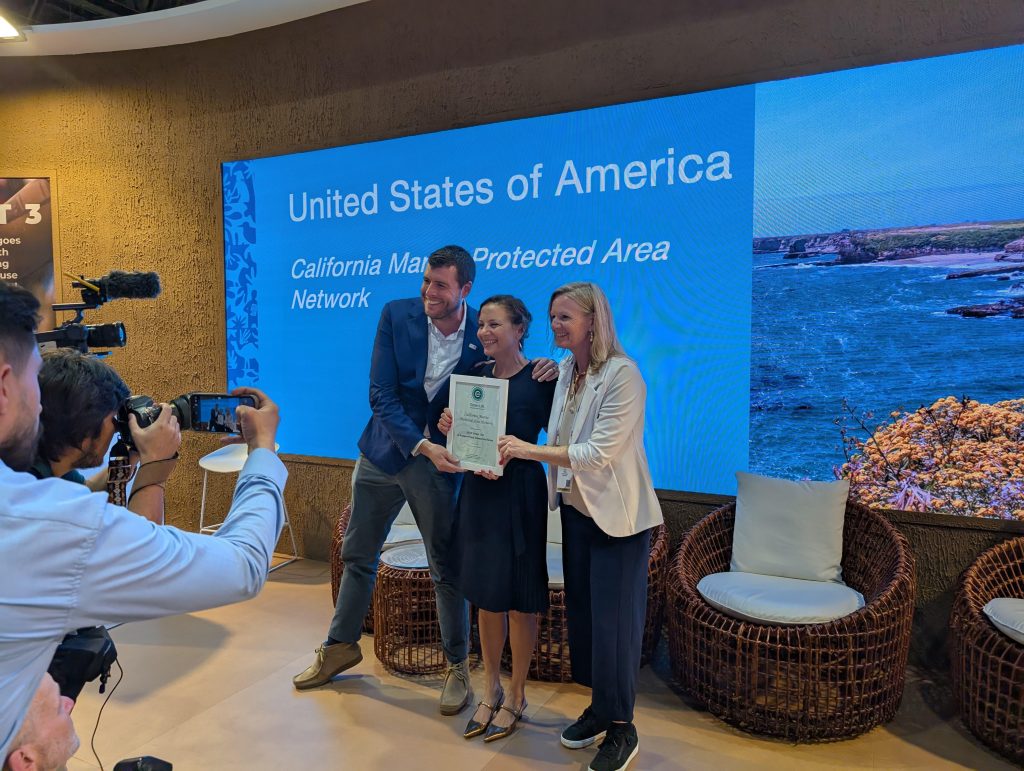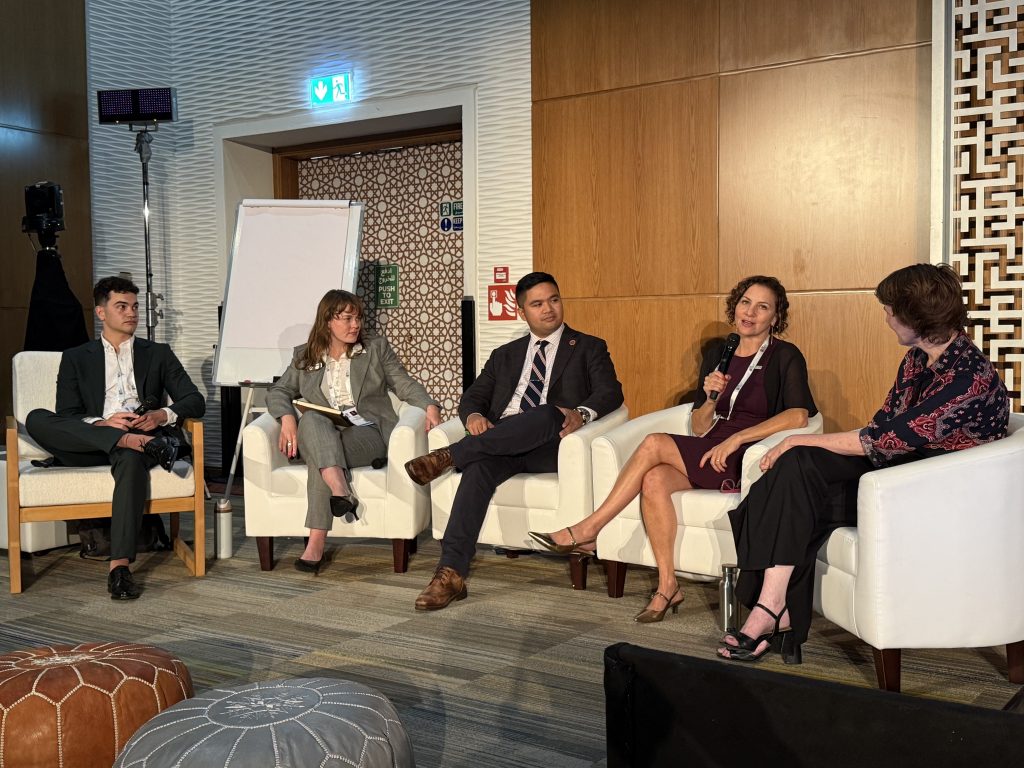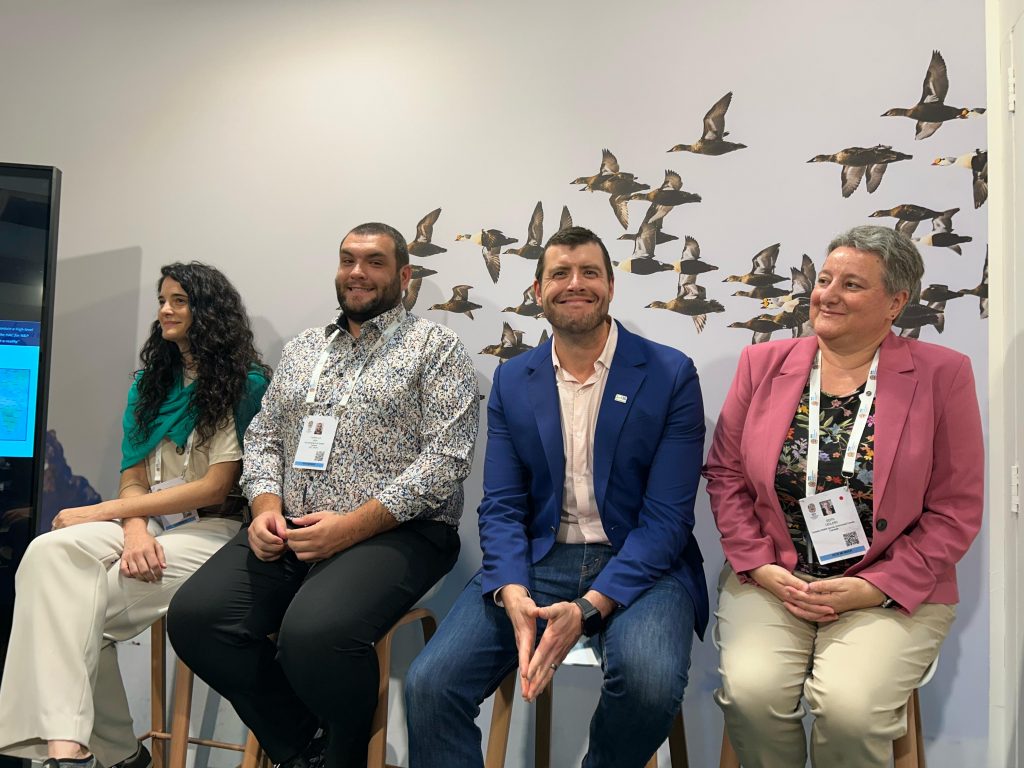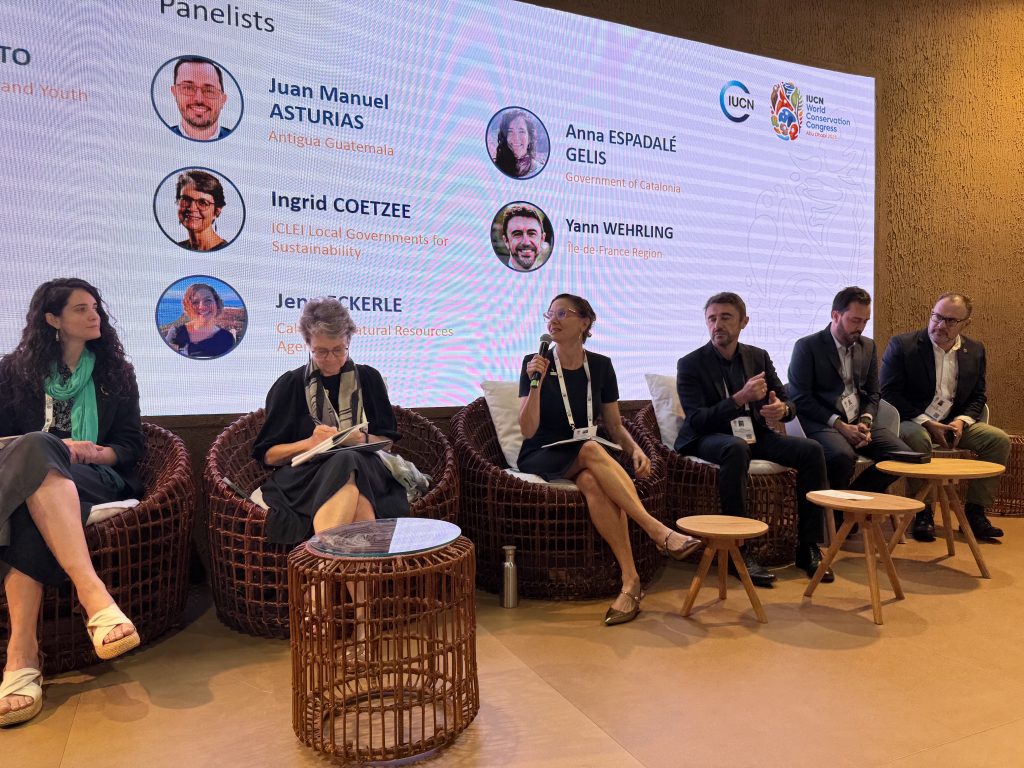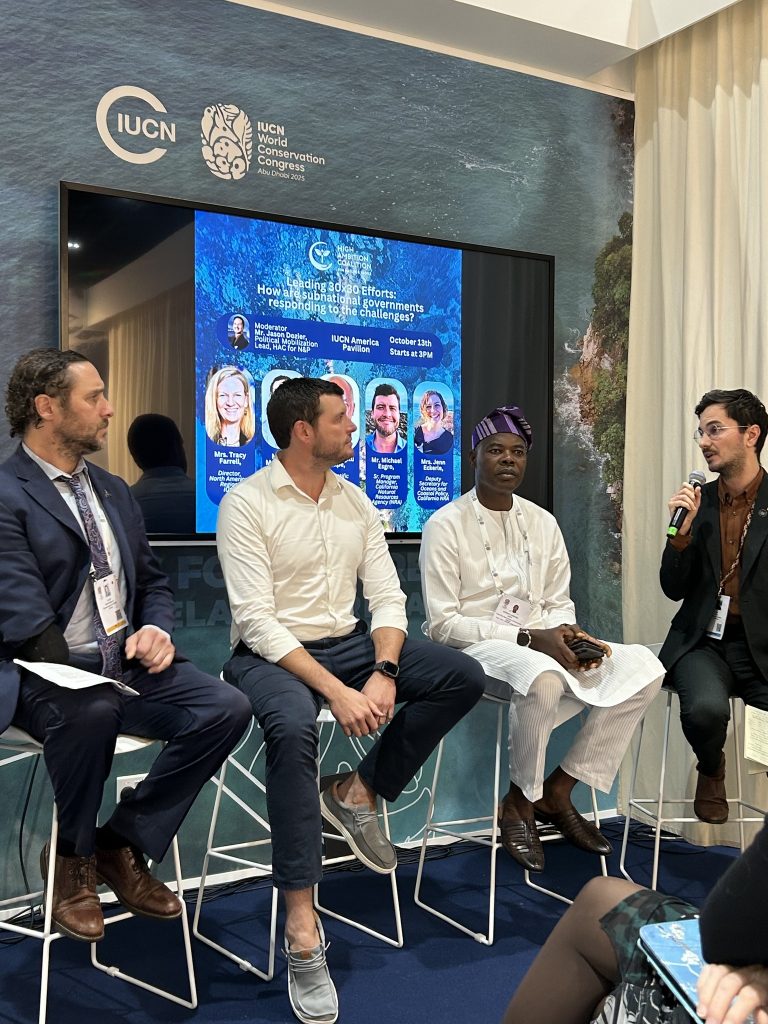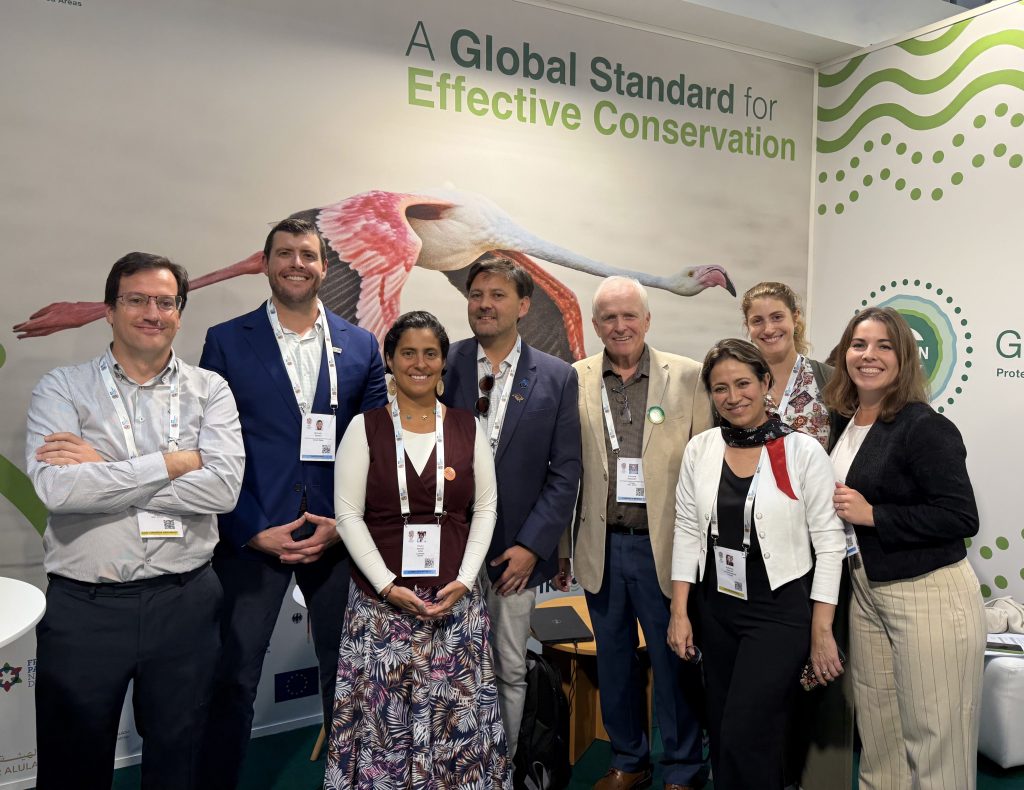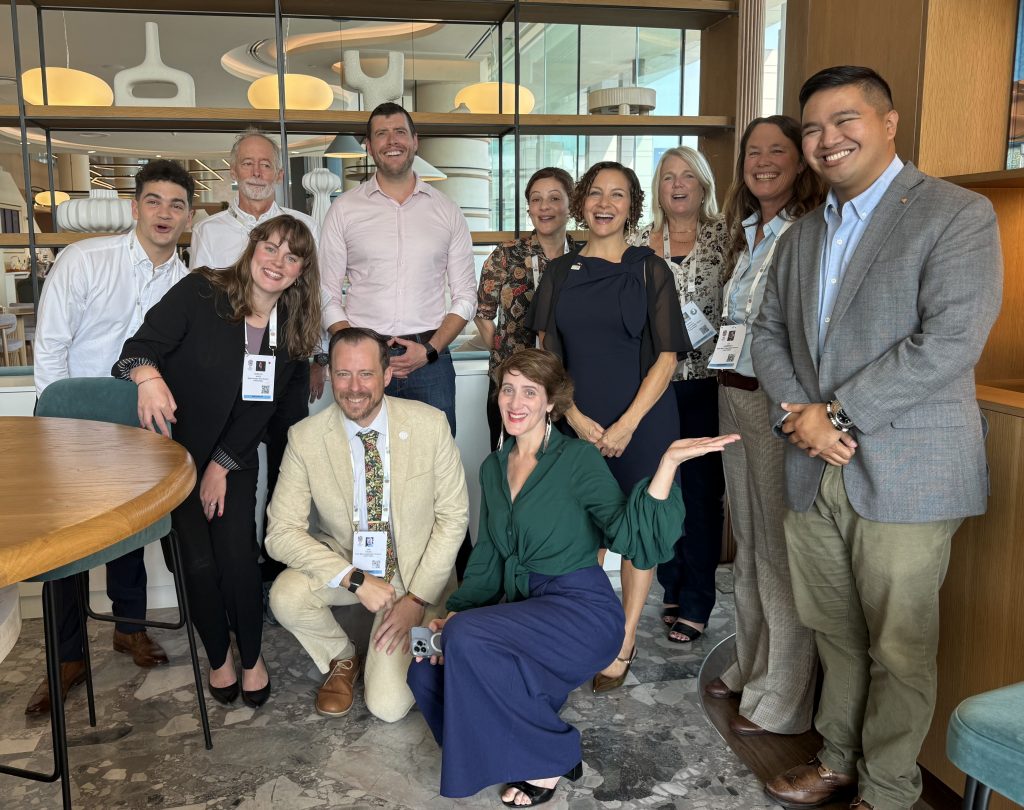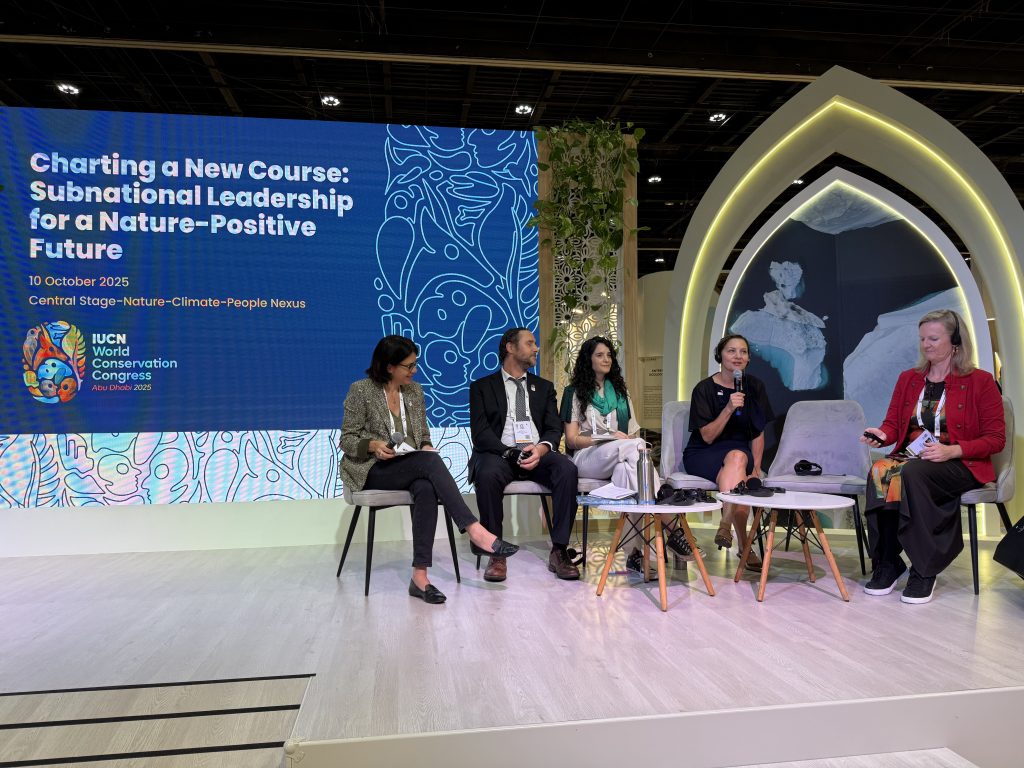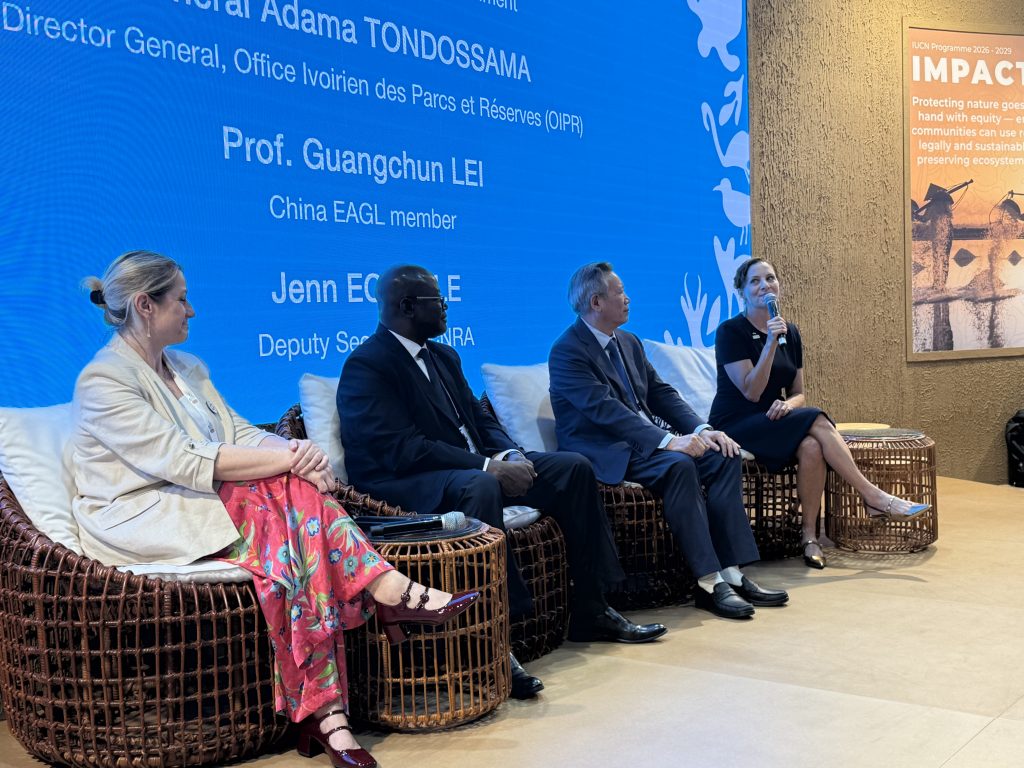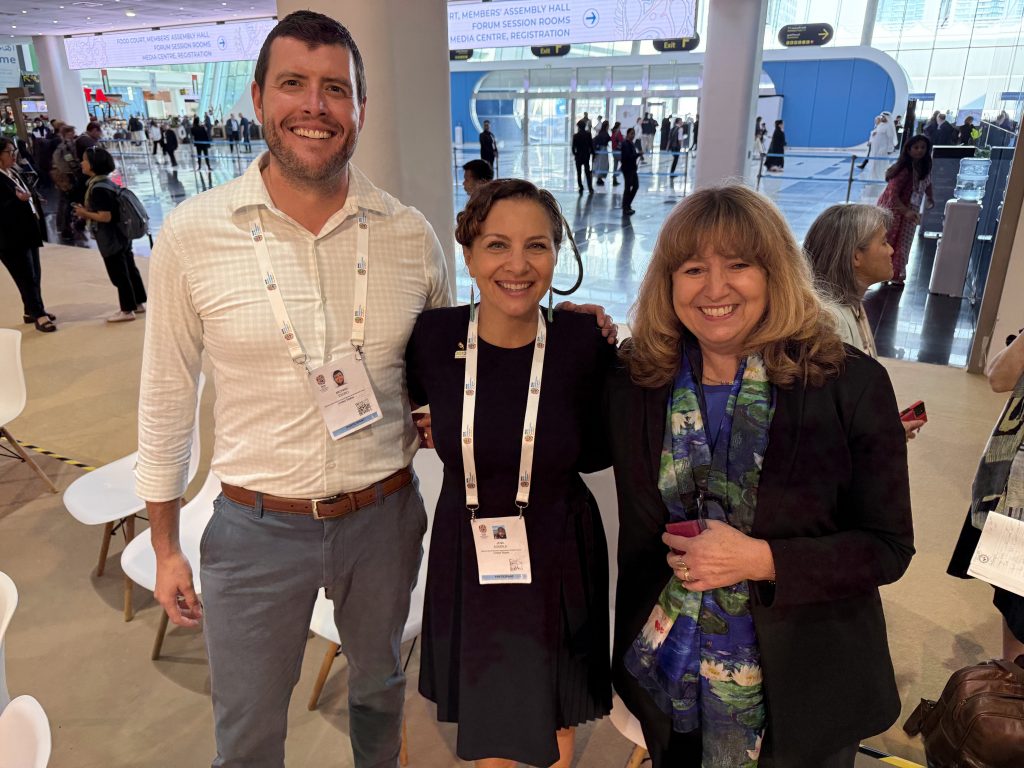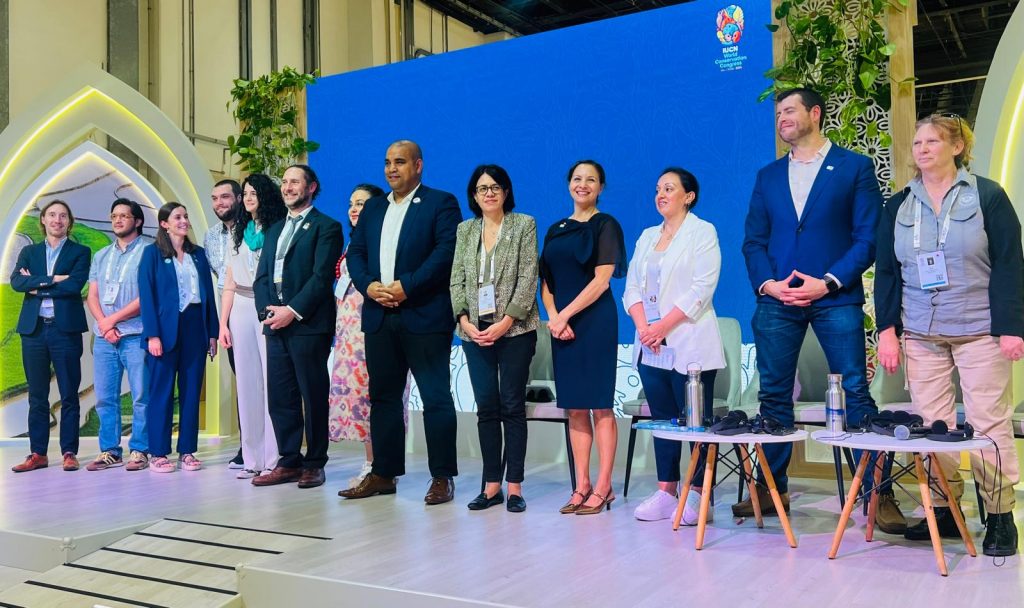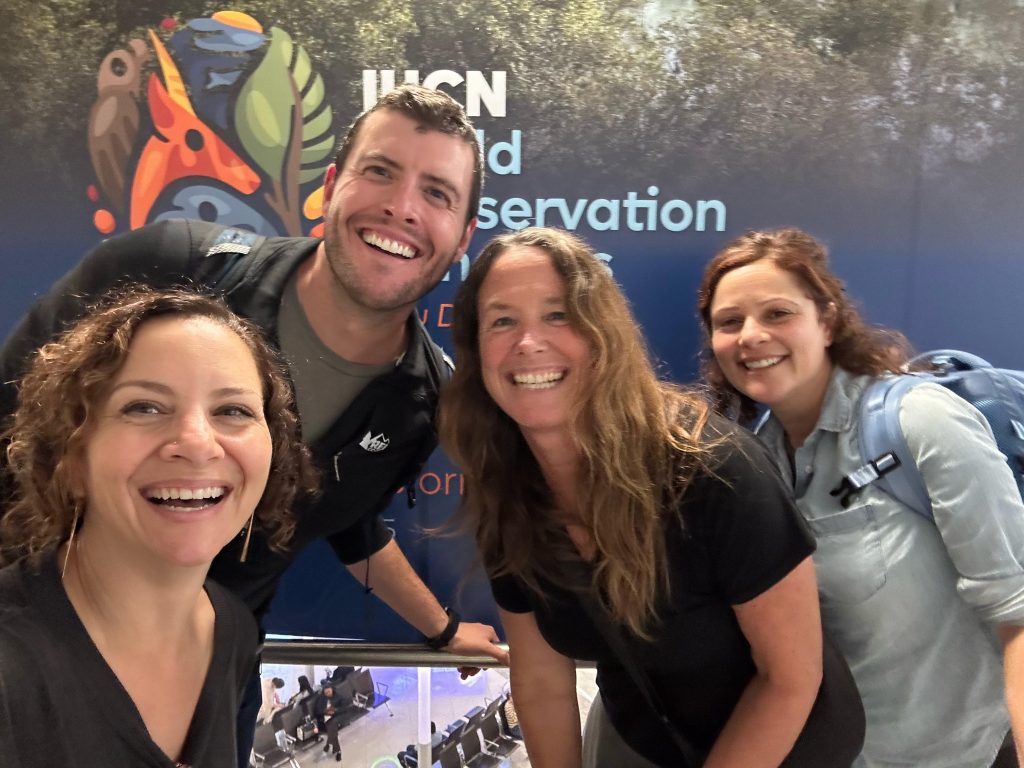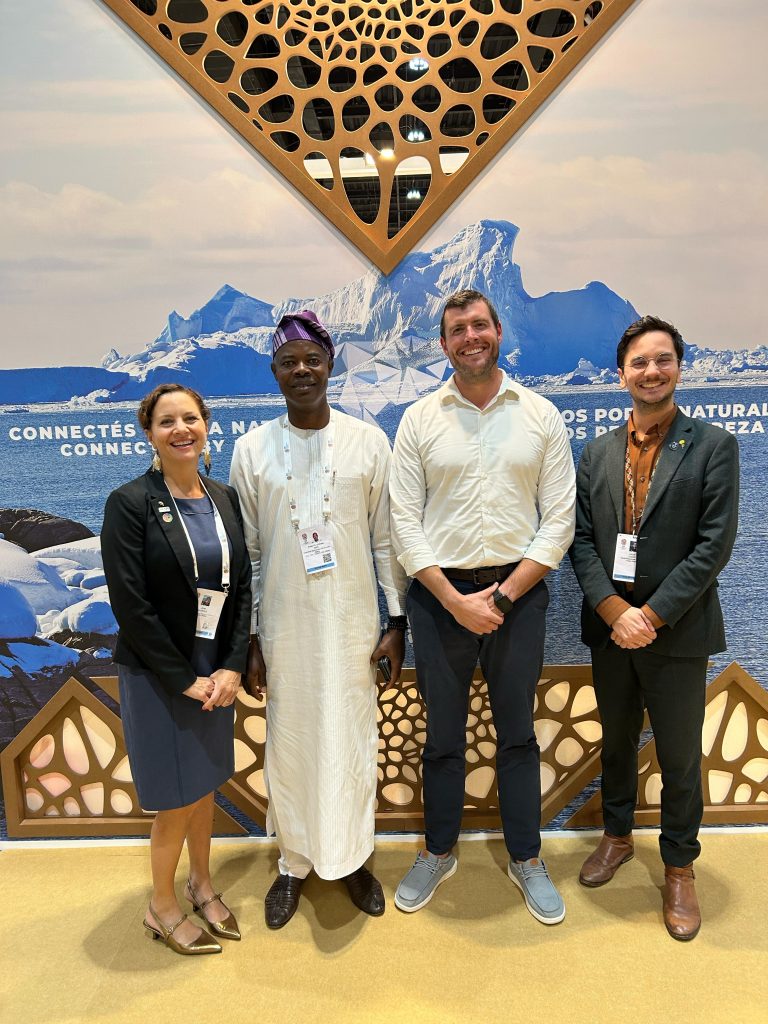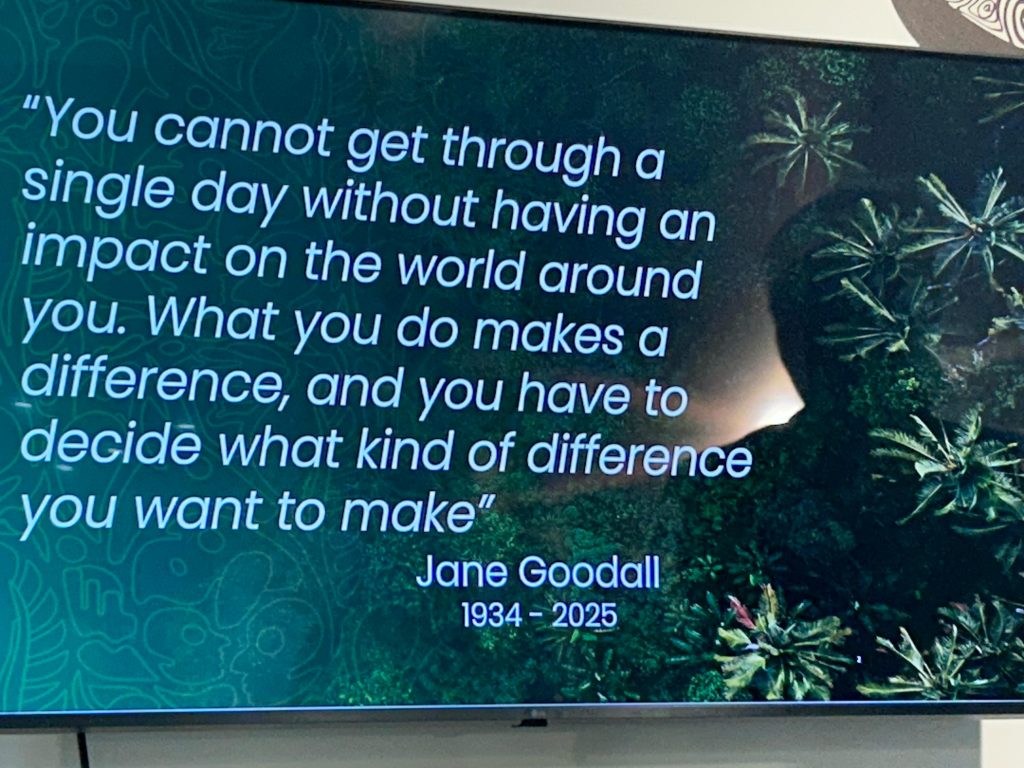Cathedral Thinking: Finding Inspiration at the IUCN World Conservation Congress
By Michael Esgro, Senior Biodiversity Program Manager & Tribal Liaison
In mid-October 2025, OPC Executive Director Jenn Eckerle and I had the privilege of attending the International Union for Conservation of Nature (IUCN) World Conservation Congress in Abu Dhabi, United Arab Emirates. The World Conservation Congress is the largest environmental convening on the planet. It only happens once every four years, and this year, it drew conservation leaders from across the globe to Abu Dhabi, where IUCN members spent several days engaged in discussion and negotiation that would ultimately set the global conservation agenda for the next decade and beyond. This was California’s first time attending a World Conservation Congress, and Jenn and I were there with a clear message from the Newsom Administration: as Donald Trump wages war on science and engages in dangerous climate denialism, California is doubling down on its efforts to fight climate change and protect nature.
I’ve been to international environmental conferences before, but from the moment Jenn and I landed in Abu Dhabi, I knew the World Conservation Congress was going to be different. First of all, we were half a world away from home, in a fast-paced and dynamic city where the desert meets the Persian Gulf. Second, this Congress was big. Really, really big. There were over 10,000 people in attendance, with an exhibition hall so packed, bustling, and loud that at times it was hard to have a conversation over the sounds of presentations in multiple languages, songs and dances at the Indigenous Peoples’ Pavilion, and raucous, impromptu group discussions where attendees, often in the traditional dress of their countries, puzzled over the various motions up for debate at the Congress. And finally, the energy and excitement at this Congress was off the charts – in part, I think, because so much of the Congress focused not on abstract policy, but on real-world action. Despite the jet lag and 11-hour time difference, it was impossible to not feel energized and inspired by what we were seeing and hearing each day.
Over the course of our five-day itinerary packed with panels, presentations, and meetings with colleagues and partners, California helped take that incredible energy to the next level. In an inspiring video address to the Congress, Governor Newsom announced that California would make history as one of two U.S. states, alongside Massachusetts, to officially join IUCN as subnational government members. In this exciting new leadership role, our state will help drive the global environmental movement, pushing for strong action on the international stage while also bringing the unparalleled resources and expertise of IUCN to bear here at home. At Congress, California also received the globally renowned Green List Award for our state’s marine protected area network. Our science-based network of 124 underwater parks is the first nature network in the world to receive this honor, which recognizes the most successful examples of place-based conservation worldwide. Strong partnerships between OPC, the California Department of Fish and Wildlife, and the California Fish and Game Commission, as well as California Native American tribes and local communities, have always been essential to ensuring the long-term success of the MPA network. Now, with this international recognition, California has expanded this history of partnership to include a global community of conservation practice.
Now that I’m back home in California, among redwoods and fog instead of desert and skyscrapers, I’m reflecting on a few key takeaways:
- To meet the urgency of this moment, we need to act now. Nature is under threat across the planet, from California to the United Arab Emirates, and climate change is accelerating biodiversity loss. If we truly want to protect what we love, we need to move further and faster, which means thinking big, improving efficiencies, and taking action even with imperfect information. As Panama’s Environment Minister Juan Carlos Navarro eloquently put it: “No speeches. Just immediate conservation action.”
- Subnational governments – think cities, states, and provinces – are leading the way on biodiversity and climate action. National leadership is necessary, but not sufficient, for conservation. And in the United States, where the federal government has abandoned its responsibility to protect nature and fight climate change, action at the subnational level is even more important. Thanks to years of advocacy by our close colleagues in the governments of Quebec and Catalonia, IUCN committed at Congress to developing its first-ever Subnational Strategy, and as an IUCN member, California will have a seat at the table to help shape and implement this new Strategy.
- Environmental conservation must amplify the voices of those who have historically been silenced, including Indigenous Peoples and developing nations. Historically, the environmental movement has often sidelined the voices of Indigenous Peoples and developing nations. But around 80% of the world’s biodiversity is managed by Indigenous Peoples, and Traditional Knowledges must play a central role in conservation. Further, the priorities of developing countries, who are often on the front lines of climate change and biodiversity loss, must be elevated in global policy discussions. At Congress, we were honored to welcome Cross River State in Nigeria to the High Ambition Coalition Subnational Government Task Force on 30×30, which California co-leads with Quebec. Cross River State is the first subnational government from Africa, and the first from the Global South, to join the Task Force.
- Protecting nature is a smart investment. Conservation is expensive. Estimates of the total funding required to implement the recently adopted Kunming-Montreal Global Biodiversity Framework range from $700 to $900 billion per year. Thanks to the voters of California and our State Legislature, the recently passed Climate Bond will allocate $10 billion to climate and biodiversity action across the state over the next several years. In California, we’re investing big in protecting and restoring nature, and as the world’s fourth-largest economy, we’re showing that an integrated approach to fighting climate change and conserving biodiversity is essential for ensuring a thriving economy.
In his video address to the Congress, Governor Newsom reminded us of an African proverb: “If you want to go fast, go alone. If you want to go far, go together.” And at the opening ceremony of the Congress, IUCN Director General Dr. Grethel Aguilar issued an inspiring call to action: “Let’s be remembered for what we did right.” Both of these quotes point to a major throughline of the Congress for me – those of us engaged in conservation are working together to build something that will outlast us. Another speaker at the opening ceremony called this “cathedral thinking.” Similar to the medieval architects who built cathedrals over centuries, we are working hard for a more just, resilient, and biodiverse future, where people and nature truly thrive together. And though we may never see the full realization of this future, I’m hopeful that we’re laying its foundations with the work we’re doing both at home and abroad. In the face of headwinds that can often seem overwhelming, and heading into further critical international convenings such as the United Nations climate summit next month and biodiversity summit late next year, that long-term vision is the inspiration that will stay with me from my time in Abu Dhabi.


